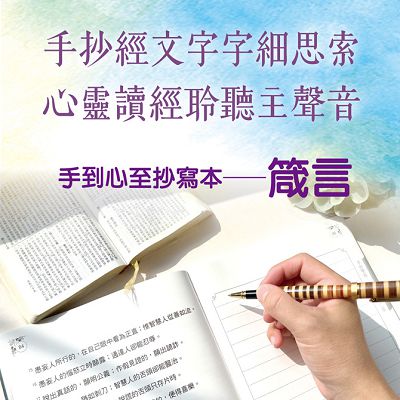Taiwan Church News
3719 Edition
June 5 ~ 11, 2023
Topical News
Reported by Chiu Kuo-rong from Taipei
Translated by Peter Wolfe
Organized by the Gender Justice Committee of the PCT’s Chi-Hsin Presbytery, a seminar entitled as “The Prevention of Sexual Harassment in the Church” was held at the Chi-Nan Church on June 3. Chaired by Dr Chiu Kai-li, assistant professor of Taiwan Theological College and Seminary, Dr Luo Chan-ying, professor of Graduate Institute of Gender Studies of Shih Hsin University, and Ms Guo Yu-shin, a PhD candidate at the Doctoral Program of Gender Education of National Kaohsiung Normal University, were invited to share their opinions in the seminar.
Prof Luo Chan-ying stressed that sexual harassment is very common in various place. The perpetrator may realize that sexual harassment is wrong, but he (or she; “he” would be used in the text followed for brevity) cannot control his (or her; “his” would be used in the text followed for brevity) inner impulse, or believes that the problem is not serious, so he easily pardons his wrongs as acceptable, Prof Luo expressed.
“When the sexual harassment event occurs in an organization, for example in the church, the high-light should be focused on how it is dealt within the organization. In theory, when an organization learns that its members are being bullied or harassed, certain protection and care should be offered to the victims, and at the same time the perpetrators should be corrected with guidance and support. In real world, however, most organizations always don’t work this way.”
Recently, as the headquarter of Democratic Progressive Party(DPP) was revealed covering up many sexual harassment cases, yet the victims’ efforts to seek justice were obviously overlooked by the DPP authorities at the very beginning, a new #MeToo movement therefore went viral across Taiwan since the silent truth uncovered since May 31st.
Prof Luo Chan-ying pointed out that, as early as the 1970s, the United States had already begun to discuss the so-called “institutional betrayal” phenomenon. In order to maintain the reputation of the organizations and keep a harmony outlook instead, their management boards were often unwilling to face and deal such internal sexual harassment problems.
Taking the college campus as an example, Prof Luo remarked that if the person involved is a respectable academia or a scholar with outstanding achievements, people always think that they have high moral standards and will not behave inappropriately. However, such thought is absolutely a misunderstanding of human nature, Prof Luo said, as a matter of fact, a person can be morally wrong while achieving excellence in some areas.
“While it is not surprising that religious organizations experience sexual harassment and assault, it is also a reminder that it is critical for any religious organization to have clear and fair systems in place to deal with the events of sexual harassment and assault.”
As a sociologist, Prof Luo stressed the importance of reducing risks through institutional norms, because corrective solutions based on individual behavior are not reliable, and the public norms should be established to guide and constrain people’s inappropriate sexual behaviors.
Regarding the prevention of sexual harassment, Prof Luo reminded that sexual harassment is often done by the powerful superiors to hurt his subordinates, so attention should be paid to preventing the aggressive behavior of the corporate superiors. And sexual harassment by superiors becomes more and more serious and sophisticated over time.
Though the Democratic Progressive Party’s recent sexual harassment scandals were exposed, and Vice President William Lai, as DPP’s chairman, immediately proposed the establishment of a relevant mechanism, however, Prof Luo believes that this mechanism is insufficient and should enforce the sexual harassment prevention above the norms of the “Act of Gender Equality in Employment”.
The reason of this criticism is that the Act of Gender Equality in Employment does not specify the content of gender equality in detail. Prof Luo advocated that organizations should have the courage to face the challenges of sexual violence and take up their responsibilities, and implement immediate and effective counter-measures. “Even if there is no formal complaints from the sexual harassment victims, the law-enforcement officials should take the initiative to investigate.”
Ms Guo Yu-shin was the first woman in Taiwan to study of the dealings of sexual abuses in the church. She pointed out that sexual harassment within the church is not uncommon. In order to prevent and deal with these problems, she indicated that Taiwan society has established relevant legal frameworks, including the “Act of Gender Equality in Employment”, “Gender Equity Education Act” and “Sexual Harassment Prevention Act”, etc.
“Churches must abide by relevant legal requirements. For example, a church with more than 10 members should set up a contact personnel to report sexual abuse, and a church with more than 30 members should set up a mechanism to report the sexual abuse cases. In addition, the church, as an institution, should apply ‘Act of Gender Equality in Employment’ when pastors sexually harass his staffs. Although the legal system has set certain standards, it cannot handle the high-level psychiatry concerning forgiveness and healing. The church should pursue the higher moral standards, positively to discover problems inside the church, and establish the corresponding mechanisms to help victims.”
Ms Guo said that in the “#MeToo” movement, exposing the problems of the Catholic Church represents the first stage of the movement to fight against sexual abuse, yet legal protection of the victims is in shortage. At present, Taiwan is entering the second stage, which is to establish a mechanism through legislation, but has not yet reached the third mature stage of a multi-layered adjustments and corrective actions. She said that the Presbyterian Church in Taiwan has established a corresponding mechanism, meaning that it has reached the second stage, but other churches that do not belong to the PCT still lack proper legal mechanisms to protect victims.
Ms Guo pointed out that the “Gender Equity Education Act”, applicable to the campus, was the most complete of the three laws concerning gender equality, and Taiwan churches can refer it to establish a protection mechanism within local church.
“However, solving the problem of sexual harassment and sexual violence in the church is a long-term process. Every denomination within Taiwan Church should set up a gender justice committee, proceed its own investigation and training mechanism, and establish policies and systems that are more comprehensive than secular society.”
In addition, “restorative justice” should be taken into consideration, as it is not only a Christian calling to pursue justice, but also a compassionate ministry focusing on healing and forgiveness to help Taiwan society become better, Ms Guo expressed. “Taiwan church, committed to promote gender justice and prevent sexual harassment as a mission, should set itself up an ideal model for Taiwan society to fight against sexual abuse!”, she said.







